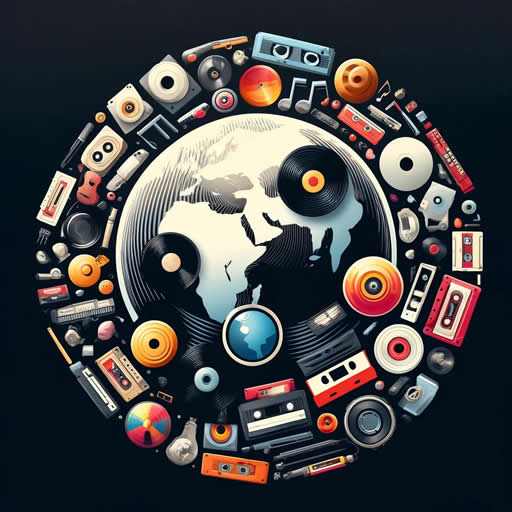The Role of Music in 1990s Blockbuster Films
The 1990s was a transformative decade for blockbuster films, and music played a huge role in shaping the audience’s experience. In many cases, the music was as iconic as the films themselves. From orchestral scores to chart-topping pop hits, the soundtracks of the ’90s helped define the tone, emotion, and legacy of many blockbuster movies.
The Rise of Iconic Orchestral Scores
Orchestral scores continued to dominate 1990s blockbusters. Composers like John Williams, Hans Zimmer, and James Horner crafted music that became synonymous with the films.
John Williams’ Impact
John Williams’ work on Jurassic Park (1993) remains one of the most iconic film scores of all time. The sweeping main theme captures the awe and wonder of the dinosaurs. It elevates the film from a typical action movie to a memorable cinematic experience. Williams’ ability to use music to reflect the scale of the story made the Jurassic Park soundtrack unforgettable.
James Horner and Titanic
James Horner’s score for Titanic (1997) became a cultural touchstone. The music heightened the film’s emotional moments, especially in the tragic final act. His song “My Heart Will Go On,” performed by Celine Dion, became a worldwide hit. It remains one of the best-selling singles of all time. The music not only supported the film’s success but also became a symbol of the romance and tragedy of Titanic.
Pop Music and Blockbuster Soundtracks
While orchestral scores thrived, the 1990s also saw an explosion of pop songs in movie soundtracks. Many films used popular music to appeal to younger audiences and boost commercial success.
Men in Black and Will Smith
Will Smith’s Men in Black (1997) was a perfect example of this trend. His title track “Men in Black” was a major hit and helped promote the film. The song’s catchy rhythm and cool vibe reflected the film’s lighthearted tone. It became a key part of the movie’s marketing campaign. Smith’s star power and music skills helped blend film and music seamlessly.
The Bodyguard and Whitney Houston
Whitney Houston’s performance in The Bodyguard (1992) brought music to the forefront. Her rendition of “I Will Always Love You” became one of the best-selling singles ever. The song’s success was tied directly to the film’s emotional impact. The soundtrack, full of Houston’s powerful vocals, helped make the film a massive box-office success.
The Role of Music in Action Films
Action films of the 1990s also used music to build tension and excitement. Whether through rock anthems or techno beats, the music enhanced the adrenaline-packed scenes.
Hans Zimmer and The Rock
Hans Zimmer’s score for The Rock (1996) added a sense of urgency to the action. His use of electronic sounds combined with orchestral elements made the music stand out. The intense, pulsating score matched the high stakes of the film’s narrative. Zimmer’s unique style helped shape how music was used in 90s action films.
Mission: Impossible Theme
The Mission: Impossible (1996) theme is another great example. The updated version of Lalo Schifrin’s original 1960s TV show theme helped set the tone for the film. Its fast-paced rhythm perfectly matched the film’s thrilling spy scenes. The theme became one of the most recognizable pieces of music in 1990s action movies.
Music as a Marketing Tool
In the 1990s, music became an essential marketing tool for blockbuster films. Soundtracks were not just background—they became products in their own right.
Space Jam and Soundtrack Success
The film Space Jam (1996) used its soundtrack as a marketing powerhouse. The song “I Believe I Can Fly” by R. Kelly became a global hit. The film’s mix of animation, sports, and popular music made it a major success with younger audiences. The soundtrack played a key role in this, with songs that captured the fun and energy of the movie.
Romeo + Juliet and Youth Culture
Baz Luhrmann’s Romeo + Juliet (1996) also used its soundtrack to tap into youth culture. The film combined Shakespeare’s classic story with contemporary pop and rock music. Artists like Radiohead, The Cardigans, and Garbage contributed to the soundtrack. The music reflected the film’s modern, edgy style and helped connect it to younger viewers.
Music’s Vital Role in 1990s Blockbusters
Music in 1990s blockbuster films did more than set the mood—it shaped the entire cinematic experience. Whether through sweeping orchestral scores or catchy pop hits, music became an integral part of storytelling. It also became a powerful marketing tool that boosted the commercial success of many films. The 1990s cemented the importance of soundtracks in shaping a film’s legacy and its place in pop culture.
